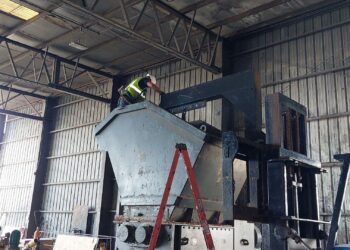In the realm of childbirth, the presence of a doula can make a profound difference in how expectant parents navigate the journey from pregnancy through postpartum. This article explores the essential role of doula support, highlighting its benefits, services, and why it’s increasingly sought after by families worldwide.
Understanding Doula Support
What is a Doula?
A doula is a professionally trained birth companion who provides continuous physical, emotional, and informational support to individuals and families before, during, and after childbirth. Unlike medical professionals, doulas focus exclusively on the comfort and well-being of the mother, offering personalized care and advocacy throughout the birthing process.
Types of Doula Support
- Birth Doula: Specializes in supporting expectant mothers during labor and delivery, offering comfort techniques, emotional support, and advocacy.
- Postpartum Doula: Assists families in the immediate postpartum period, providing practical support with newborn care, breastfeeding, and emotional support for the new parents.
Benefits of Doula Support
Emotional and Psychological Support
Doulas play a crucial role in promoting a positive birth experience by offering:
- Continuous Presence: Doulas remain by the mother’s side throughout labor, providing reassurance, encouragement, and comfort.
- Reduced Anxiety: Their presence helps reduce anxiety and fear associated with childbirth, promoting a sense of calm and empowerment.
- Partner Involvement: Doulas also support partners, ensuring they feel confident and involved in the birthing process.
Physical Comfort Measures
Doulas are trained in various comfort techniques, including:
- Breathing Exercises: Techniques to manage pain and promote relaxation.
- Massage and Touch Therapy: Methods to alleviate discomfort and enhance relaxation during labor.
Advocacy and Information
Throughout pregnancy and childbirth, doulas provide:
- Evidence-Based Information: Information on birthing options, interventions, and procedures, empowering parents to make informed decisions.
- Communication Liaison: Serve as a liaison between the parents and medical staff, ensuring preferences are respected and understood.
Choosing a Doula
Factors to Consider
When selecting a doula, consider the following:
- Training and Certification: Look for doulas certified by reputable organizations like DONA International or CAPPA.
- Experience: Inquire about their experience supporting births similar to your preferences.
- Compatibility: Choose a doula whose approach aligns with your birth plan and personal values.
Interview Process
- Discuss Expectations: Clarify expectations, services offered, and availability around your due date.
- References: Seek references from previous clients or healthcare providers to gauge their reputation and reliability.
Training and Certification
Educational Requirements
Doulas undergo comprehensive training programs covering:
- Childbirth Education: Understanding stages of labor, pain management techniques, and medical interventions.
- Support Techniques: Hands-on training in comfort measures, communication skills, and emotional support.
Certification
While certification is not mandatory, it demonstrates a doula’s commitment to professionalism and ongoing education in the field.
Common Misconceptions About Doula Support
Expensive Services
While doula services are an investment, many families find the benefits outweigh the cost. Some insurance plans may cover doula services, and doulas often offer payment plans or sliding-scale fees.
Exclusivity to Natural Births
Doulas support all types of births, including cesarean sections and medicated births. Their role is to provide non-judgmental support tailored to the family’s preferences and needs.















